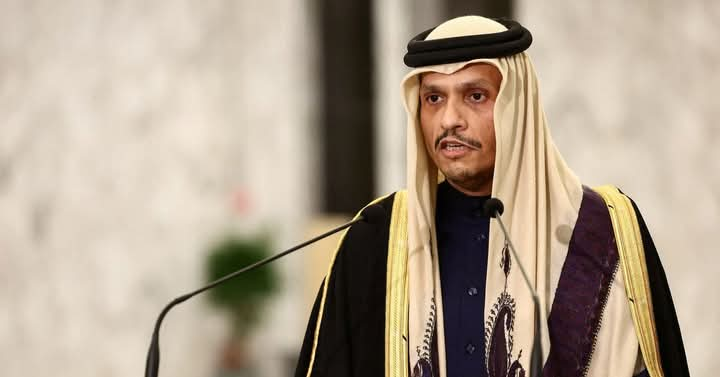
By Adeyemi Adekunle
Qatar’s Prime Minister and Minister of Foreign Affairs, Sheikh Mohammed bin Abdulrahman Al Thani, have issued a stark warning regarding the potential repercussions of a military strike on Iran’s nuclear facilities. He emphasized that such an action could lead to severe environmental and humanitarian crises across the Gulf region.
Sheikh Mohammed highlighted that an attack on Iran’s nuclear sites could result in the contamination of the Gulf’s waters, which are the primary source of potable water for countries like Qatar, the United Arab Emirates, and Kuwait. These nations, with minimal natural water reserves, rely heavily on desalinated water drawn from the Gulf to sustain their populations, totaling over 18 million people. The Prime Minister cautioned that contamination would lead to a dire situation with “no water, no fish, nothing… no life.”
The strategic location of Iran’s nuclear facilities, particularly the Bushehr nuclear power plant situated along the Gulf coast, raises significant concerns. Sheikh Mohammed noted that some of these sites are geographically closer to Doha than to Tehran, underscoring the immediate risk to neighboring Gulf states.
Beyond environmental implications, the Prime Minister stressed the broader geopolitical risks. He warned that military action against Iran could trigger a widespread regional conflict, exacerbating existing tensions and leading to unpredictable consequences. Sheikh Mohammed advocated for diplomatic solutions, stating that Qatar remains committed to facilitating dialogue and will not support any military interventions.
In light of these potential threats, Qatar has proactively enhanced its emergency preparedness. The nation has constructed 15 of the world’s largest concrete water reservoirs to bolster its emergency water supply, aiming to mitigate the risks associated with any potential contamination of the Gulf waters.
The Prime Minister’s remarks come amid heightened tensions between the United States and Iran. While U.S. President Donald Trump has expressed a desire to negotiate a new nuclear deal with Iran, he has simultaneously reinstated a “maximum pressure” campaign aimed at isolating Iran economically and curtailing its oil exports. Iran, on the other hand, maintains that its nuclear program is for peaceful purposes and has resisted external pressure to enter new negotiations.
As the situation unfolds, regional leaders and the international community are urged to consider the profound environmental and humanitarian stakes involved. The potential contamination of the Gulf’s waters serves as a sobering reminder of the far-reaching consequences that military actions can entail, reinforcing the need for diplomatic engagement and peaceful resolutions.



